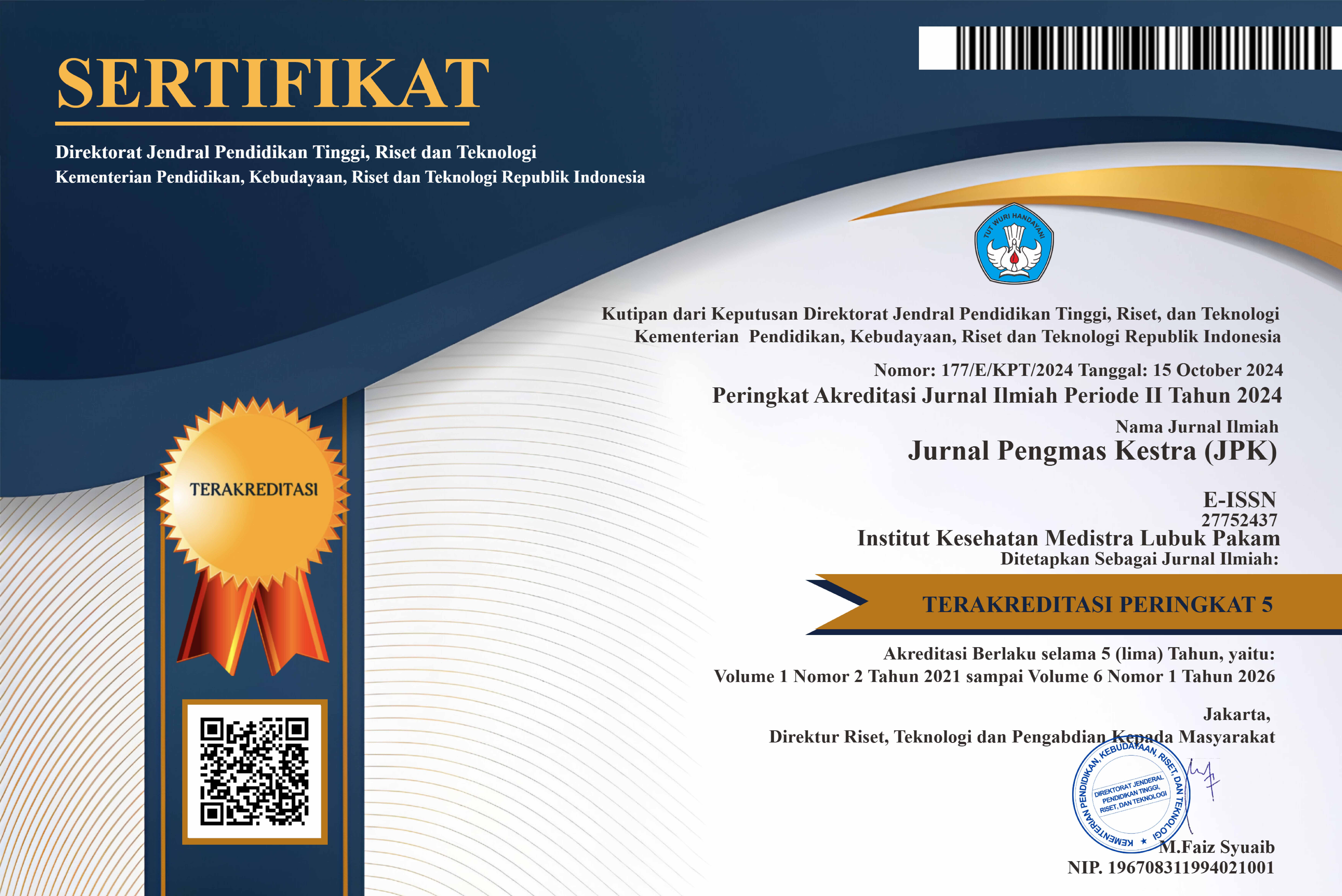SOCIALIZATION OF GIVING GINGER TO REDUCING PATHOGENIC AND FOOD-DESTROYING BACTERIA IN CHICKEN MEAT
SOCIALIZATION OF GIVING GINGER TO REDUCING PATHOGENIC AND FOOD-DESTROYING BACTERIA IN CHICKEN MEAT
DOI:
https://doi.org/10.35451/jpk.v2i2.1432Keywords:
Socialization, Ginger, Chicken Meat, Bacterial ReductionAbstract
Broiler chicken meat is a food source of animal origin that is widely consumed in Indonesia. The affordable price makes the demand for broiler chicken meat increasing. Chicken meat is easily contaminated by various microorganisms from the surrounding environment. Several types of microbes that can contaminate meat include E. Coli bacteria, Clostridium botulinum bacteria, Clostridium Perfringens, Salmonella bacteria, Staphylococcus aureus, and Anthrax. Microbial contamination in the form of Salmonella bacteria is generally found in broiler chicken meat. To overcome microbial contamination, the researchers conducted research on the effect of ginger on reducing the number of bacteria in chicken meat. This socialization aims to provide information to the public to be able to use ginger as an inhibitor and reduce the number of pathogenic bacteria and food destroyers in chicken meat. The results of this socialization were obtained from previous research which concluded that a decrease in the number of bacteria was due to the administration of ginger. This is because ginger contains secondary compounds such as phenols, treponoids and benzaldehyde which are bacteriostatic so that they function to inhibit the growth of microorganisms. The results of the socialization carried out in the community around Lubuk Pakam stated that they understood the processing and storage techniques (100%).
References
Afifah N. 2013. Uji salmonella-shigella pada telur ayam yang disimpan pada suhu dan waktu yang berbeda. J. Ilmiah edu research.2(1):35-46.
Sari, K., et. al. , 2013 , Uji Antimikroba Ekstrak Segar Jahe-jahean (Zingiberaceae) terhadap Staphylococcusaureus, Escherichi coli dan Candida albicans , Jurnal Biologi Universitas Andalas, 2(1):h.20-24.
Syukur.2013. Perkembangan Konsumsi Protein Hewani Di Indonesia: Analisis Hasil Survey Sosial Ekonomi Nasional 2011-2012. Jurnal Ilmu Ternak Juni 2013, Vol.6 No. I: 68-74.
Taha, SR. 2012. Cemaran Mikroba Pada Pangan Asal Hewan di Pasar Tradisional Kota Gorontalo. Fakultas Ilmu Pertanian, Universitas Negeri Gorontalo. Gorontalo.
Zulaekah, 2012. Gambaran Pengetahuan Penyaji Makanan (Food Handler) Pada Rumah-Rumah Makan di Jalan Dr. Mansur tentang Amebiasis.Skripsi. Fakultas kedokteran. Universitas Sumatera Utara. Medan.
Downloads
Published
Issue
Section
License
Copyright in each article is the property of the Author.




















